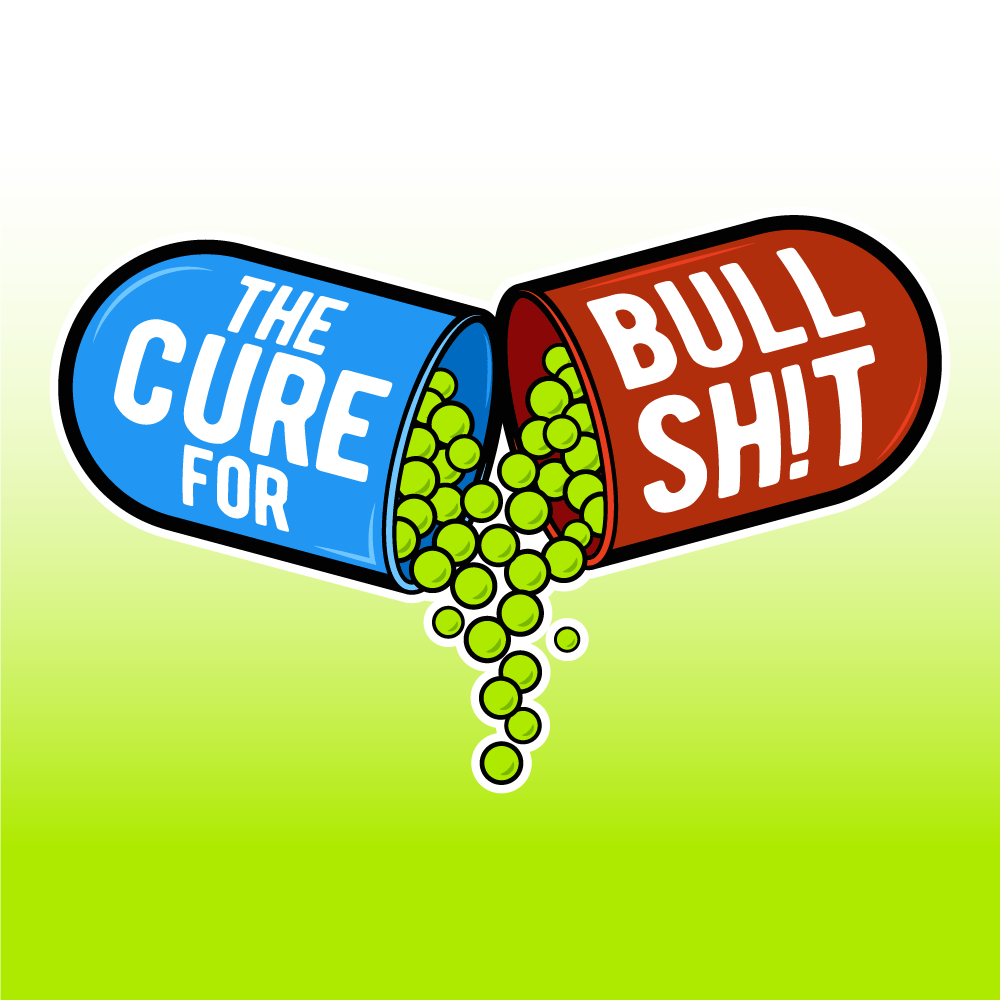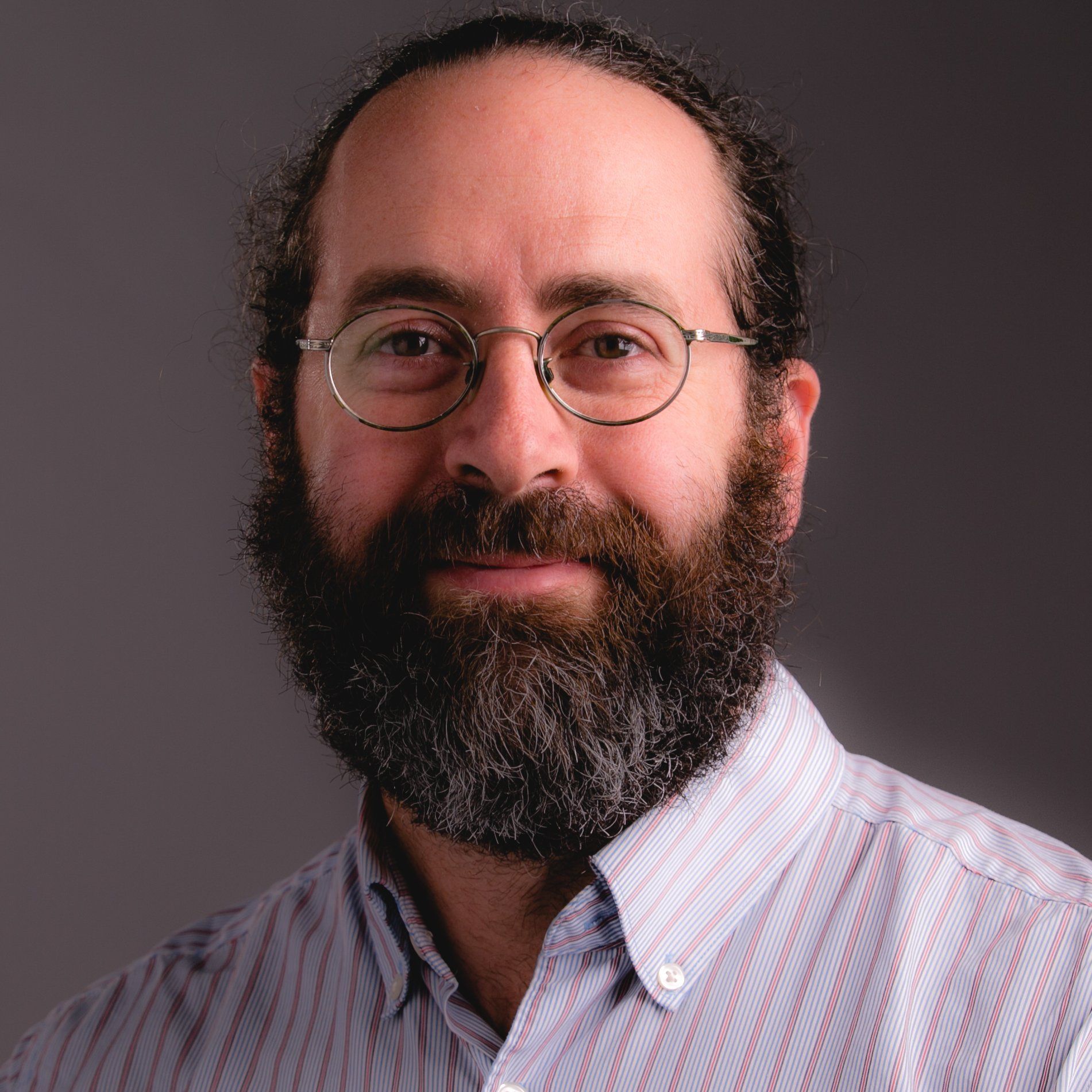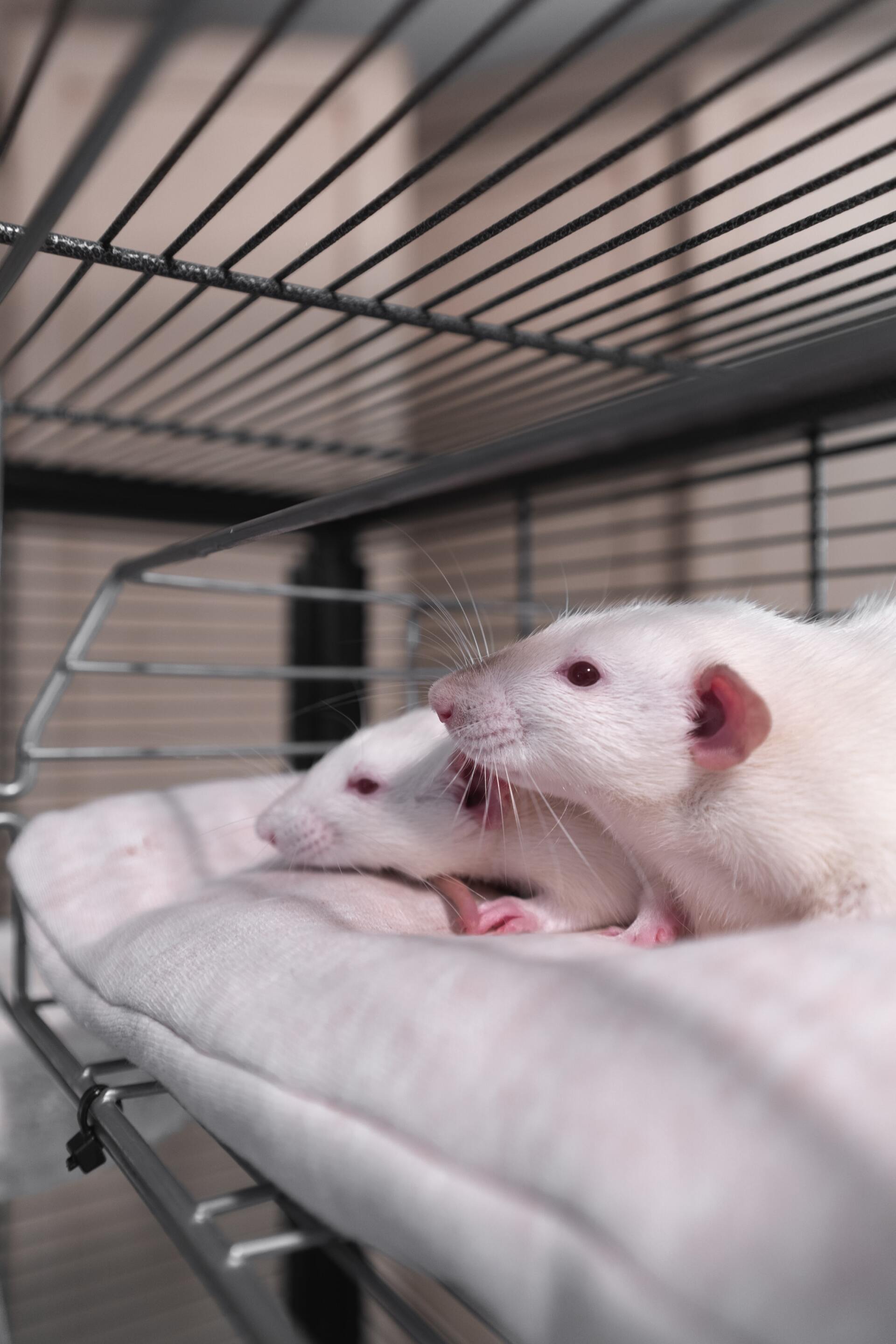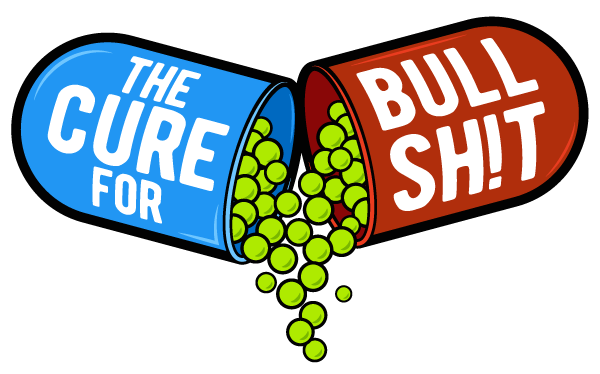
podcast trailer | 08/29/2022
what is the cure for bullshit?
Welcome to the Cure for Bullshit, a podcast where we interview patients, doctors, researchers and skeptics about their practical advice for navigating the healthcare system and avoiding medical scams. These interviews will also be part of a forthcoming book that will serve as a master class for avoiding and dealing with medical bullshit.
Imagine if you had a class in high school that was like home economics but for your health. Instead of teaching you to balance a checkbook or follow a cookie recipe, it went into depth about how your body works, how to talk to doctors, and how to tell if the latest dietary recommendations are worth following or simply another fad. The Cure for Bullshit is that class. In the Cure for Bullshit podcast, we interview patients, doctors, researchers and skeptics about their practical advice for navigating the healthcare system and avoiding medical scams. These interviews will also be part of a forthcoming book that will serve as a master class for avoiding and dealing with medical bullshit. Subscribe now to be notified when new episodes are available.
main topics
- What is the cure for bullshit?
- Who is Benzi Kluger?
- Who is Janece Matsko?
- Why did you start this podcast?
- What is the goal of this podcast?
additional resources
Join the email list:
https://www.thecureforbullshit.com/contact
our guest

dr. benzi kluger
Dr. Benzi is a Professor of Neurology and Medicine and Director of the Palliative Care Research Center and Neuropalliative Care Division at the University of Rochester Medical Center in Rochester, New York. He is a practicing neurologist, researcher, and educator with an international reputation in the specialty area of Neuropalliative care.
During his 20+ year research career, Benzi has led diverse research projects ranging from acupuncture to neuroimaging and multisite clinical trials. His research has been funded by the National Institutes of Health, the Michael J. Fox Foundation, the Patient Centered Outcomes Research Institute, and the Department of Defense. He has been published in top tier peer-reviewed journals and invited to speak by patient and professional groups around the globe. Dr. Benzi has led or participated in several international working groups, most recently as co-director for the Parkinson Foundation’s working group on cannabis. He is a co-editor of a new textbook on Neuropalliative care, co-director of the Education in Palliative and End-of-life Care project’s Neurology curriculum, and the founding President of the International Neuropalliative Care Society.
When he is not working, Benzi enjoy spending time with friends and family, creative writing, travel, reading, camping, music, improv comedy and professional wrestling.

Janece Matsko
Janece was born and raised in Colorado and graduated with a BA in Design Management from the Art Institute of Colorado. After college she began a personal journey of health and wellness while exploring a career in restaurant management. A true "Jane of All Trade" she has a wide variety of interest and talents acquired over years of research and personal development. In 2019 she began editing a podcast for Rebekah Henderson and found a new passion for sharing ideas through audio stories. Janece's personal mission statement is "to unite all people around our shared humanity."
On the weekends she helps her partner run a food truck called "Look Hu's Cooking." In her free time she enjoys reading, playing video games, cooking and going on long walks with their dog Buster.
theme music
theme song provided by Timothy Ott and The Daily Afflictions
Check out our theme song "Prescription Kills" and more music by The Daily Afflictions on Spotify
read more about these topics




